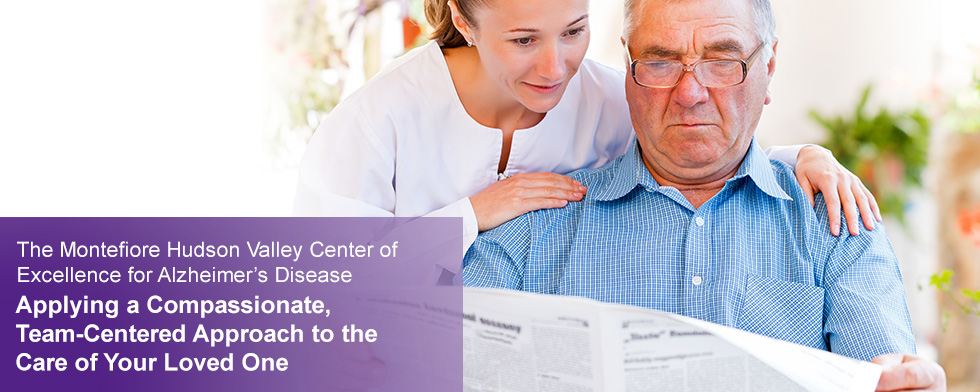Caring for People with Dementia - Little Moments Count
Bronx Voice, June 17, 2022
By Dr. Jessica Zwerling, director, Montefiore Hudson Valley Center of Excellence for Alzheimer’s Disease (CEAD)
The smell of chocolate and the taste of ice cream brings back sweet memories for me and my daughter; we think of her grandmother and how she loved chocolate and Haagen Dazs’ vanilla ice cream. Grandma’s infectious laughter and possession of “her pint” of ice-cream brought smiles to everyone during family dinners, even when she forgot what she had just eaten or mixed up our names.
What did matter was that her confusion and forgetfulness were caused by Alzheimer’s disease.
The harsh reality of this disease came into our lives again and again, until ultimately, she even forgot her love of chocolate and ice cream, and we had to change the way we related to her. We were forced to live in the moment and enjoy the time we had, even as Grandma experienced progressively worse symptoms.
In my practice, I’ve seen how Alzheimer’s disease affects the whole family, but my teens learned this firsthand. Together we embraced little moments and focused on connection. Like all families with a loved one who has a memory disorder, we had to navigate behavioral changes in different phases of her illness. Including grandchildren or teens in this process is important. Here are some things that could be helpful for others living through this experience:
- When a loved one has a memory disorder, you can enjoy a walk together, but hold hands tightly, stay close to home and make sure you know the route back.
- When it comes to meals, give simple choices, like “chocolate” or “vanilla” ice cream for dessert.
- Loud, crowded, confusing situations, especially those away from home, should be avoided.
- Music can be soothing and help recall pleasant memories.
- Often dementia can lead to paranoia, so it is helpful not to talk too much in front of your loved one without including them.
- Watching the news can be hard for people with memory disorders as they struggle to differentiate TV from their reality, so avoid leaving it playing.
For grandchildren, especially teens, it’s important to share and reach out to parents and friends. Some of the behaviors or personality changes caused by Alzheimer’s can be embarrassing to talk about, but speaking to other people helps you process how things are changing and your feelings. Emotions like sadness or frustration as you see grandparents progress in their disease is normal.
While there is currently no cure for Alzheimer’s disease or other dementias, specialists like my team at Montefiore Hudson Valley Center of Excellence for Alzheimer’s Disease can help you and your loved ones better understand this illness.
Support services and treatments which manage symptoms can be helpful. Our center helps families build skills and confidence in managing Alzheimer’s disease. Today, I’m a physician but years ago I was a teenager who supported a family member with Alzheimer’s disease; this helps me to relate to the stressors and challenges my patients and their family members face.
There will be many special moments even after diagnosis, and you can create memories that will last forever. Grandma died a few months ago, but for all of us, the smell of chocolate and the taste of ice cream—especially Haagen Daz-- makes us smile and remember the fun times we shared with her.


